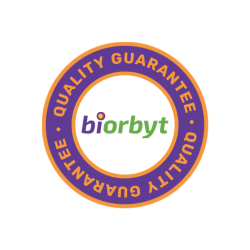You have no items in your shopping cart.
Page Not Found
Cart summary

Rabbit anti Human Factor VII
Catalog Number: orb21224
| Catalog Number | orb21224 |
|---|---|
| Category | Antibodies |
| Description | Precipitating polyclonal rabbit antiserum to human coagulation Factor VII. Plasma Factor VII is a vitamin K-dependent glycoprotein (MW 63,000) with an electrophoresis mobility in the beta region. It circulates in plasma in a semi-active form, even in the absence of tissue factor. Then procoagulant activity of FVII can be destroyed by heating to 56C. It is unstable below pH 3 and above pH 9. It survives he clotting process and its presence can be demonstrated in serum. After isolation its molecular weight was 44,700. Factor VII is a serine protease depending on a lipid cofactor and can be activated to FVIIa by factors IXa, Xa and XIIIa, thereby linking the intrinsic and extrinsic coagulation systems since FXII and FIX can be activated by kallikrein. The normal adult plasma FVII level is about 0.5 to 1.0 mg/ml. In normal newborn infants the average level is about 50% of the adult concentration. A deficiency of FVII, congenital or acquired, results in a bleeding disorder. The congenital form is rare but the acquired form is commonly seen in association with a deficiency of FII, FIX and FX in liver disease and in patients taking coumarin-type anticoagulant drugs. Both procoagulant activity and FVII-related antigen are depressed. In haemorrhagic disease of the newborn, procoagulant activity is reduced but not the level of the FVII antigen. A similar discrepancy may be seen in congenital deficiencies but in other types FVII antigen will be severely reduced as a result of genetic suppression of synthesis capacity. If still present, the FVII molecules appear to be biologically defective. Heterozygote carriers can now be detected. FVII procoagulant activity and related antigen levels have been shown to correlate directly with the plasma triglyceride concentration. This makes FVII a risk factor for myocardial infarction; immediately following an acute myocardial infarction patients have increased plasma FVII procoagulant activity. FVII is purified from plasma and Freund's complete adjuvant is used in the first step of the immunization procedure. |
| Species/Host | Rabbit |
| Clonality | Polyclonal |
| Antibody Type | Primary Antibody |
| Form/Appearance | Delipidated, heat inactivated, lyophilized, stable whole serum. Sodium azide 1 mg/ml Total protein and IgG concentrations in the antiserum are comparable to those of pooled normal rabbit serum. No foreign proteins added. |
| Conjugation | Unconjugated |
| Hazard Information | This product is intended FOR RESEARCH USE ONLY, and FOR TESTS IN VITRO, not for use in diagnostic or therapeutic procedures involving humans or animals. This product contains sodium azide. To prevent formation of toxic vapors, do not mix with strong acidic solutions. To prevent formation of potentially explosive metallic azides in metal plumbing, always wash into drain with copious quantities of water. This datasheet is as accurate as reasonably achievable, but Biorbyt accepts no liability for any inaccuracies or omissions in this information. |
| UniProt ID | P08709 |
| Source | Plasma factor VII is ea vitamin K-dependent glycoprotein (MW 63,000) with an electrophoresis mobility in the beta region. It circulates in plasma in a semi-active form, even in the absence of tissue factor. Then procoagulant activity of FVII can be destroyed by heating to 56ºC. It is unstable below pH 3 and above pH 9. It survives he clotting process and its presence can be demonstrated in serum. After isolation its molecular weight was 44,700. Factor VII is a serine protease depending on a lipid cofactor and can be activated to FVIIa by factors IXa, Xa and XIIIa, thereby linking the intrinsic and extrinsic coagulation systems since FXII and FIX can be activated by kallikrein. The normal adult plasma FVII level is about 0.5 to 1.0 μg/ml. In normal newborn infants the average level is about 50% of the adult concentration. A deficiency of FVII, congenital or acquired, results in a bleeding disorder. The congenital form is rare but the acquired form is commonly seen in association with a deficiency of FII, FIX and FX in liver disease and in patients taking coumarin-type anticoagulant drugs. Both procoagulant activity and FVII-related antigen are depressed. In haemorrhagic disease of the newborn, procoagulant activity is reduced but not the level of the FVII antigen. A similar discrepancy may be seen in congenital deficiencies but in other types FVII antigen will be severely reduced as a result of genetic suppression of synthesis capacity. If still present, the FVII molecules appear to be biologically defective. Heterozygote carriers can now be detected. FVII procoagulant activity and related antigen levels have been shown to correlate directly with the plasma triglyceride concentration. This makes FVII a risk factor for myocardial infarction; immediately following an acute myocardial infarction patients have increased plasma FVII procoagulant activity. FVII is purified from plasma and Freund’s complete adjuvant is used in the first step of the immunization procedure. |
| RRID | AB_10751456 |
| Storage | Maintain refrigerated at 2-8°C for up to 2 weeks. For long term storage store at -20°C in small aliquots to prevent freeze-thaw cycles. |
| Buffer/Preservatives | Delipidated, heat inactivated, lyophilized, stable whole serum. Sodium azide 1 mg/ml Total protein and IgG concentrations in the antiserum are comparable to those of pooled normal rabbit serum. No foreign proteins added. |
| Note | For research use only |
| Expiration Date | 12 months from date of receipt. |


